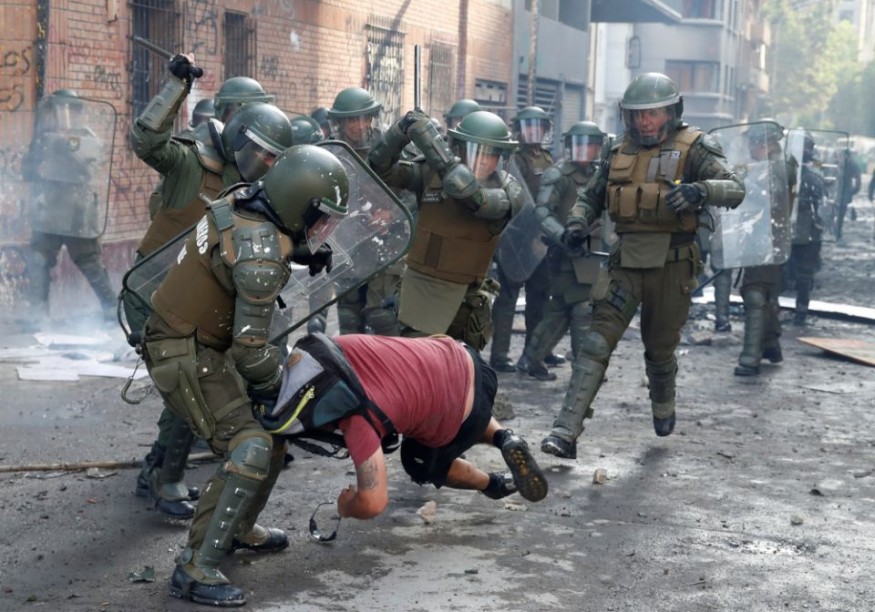Human Rights Violations in Chile Persists: UN Accuses Police of Using Brute Force

The United Nations has accused the police and armed forces in Chile for a series of serious human rights violations in the recent mass demonstrations.
Last month, Latin Post published a report about the cancellation of the APEC and Global Climate Change Summit due to the nationwide protests. Chileans were asking for better government services and economic equality behind the economic progress of the country. The protest last month led to the destruction of buildings and some cars were even set ablaze.
In the past few weeks, the protest have become more violent as the number of persons inflicted increases. In a published report from BBC News, the United Nations verified four cases in Chile of unlawful deaths including state agents.
The UN has noted also around 345 people who have suffered different inflictions such as eye trauma, torture, and sexual abuse. Also, out of more or less 28,000 detained since October, there are still around 1,600 people who remained in the detention.
The nationwide protests happened following the demand of the Chileans to social reforms and to change the constitution that was drafted during the Augusto Pinochet era. It seems for the Chileans that their constitution seems to be obsolete and is not applicable anymore in the present period. The nationwide protests led to the death of 26 people and injured hundreds.
According to the UN, the Chilean government has figured out around 4,900 people got injured in the country's nationwide protest. However, the figure given by the Chilean government is different from other sources that give a higher number of Chileans injured in the mass protest.
The UN has accounted for 113 cases of torture, 24 cases of sexual violence against women, men, and adolescents committed by members of police and army. The UN also said the police and armed forces used anti-riot shotguns and tear gas.
UN mission team leader Imma Guerras-Delgado said during the Geneva news briefing that "We have found that the overall management of assemblies by police was carried out in a fundamentally repressive manner."
Moreover, the protest was also triggered following the announcement that transport fares will rise in Santiago, the country's capital. The protest spread quickly across the country and the revolt even grew. Chileans main concerns of revolt are inequality, the high price of healthcare, and poor funding for education.
Meanwhile, President Sebastian Pinera declared that the country was at war and the harsh repression of police and armed forces stoked the anger of the demonstrators.
It can also be recalled that the President of Chile urged the citizens to stop the protest because it would create economic sabotage in the country that will affect thousands of businesses. He even said month that he wanted his people to sign in an accord.
President Pinero then decided to cancel two of the biggest events in the world, the Apec and Global Summit, because it is too risky for world leaders to be in their country amidst the national protest. Political experts also said that holding these two summits while the country is at unrest would not help the leaders to discuss their concerns.
Moreover, the United Nations continues to account for the number of Chileans inflicted with the national protests.
Subscribe to Latin Post!
Sign up for our free newsletter for the Latest coverage!
© 2025 Latin Post. All rights reserved. Do not reproduce without permission.













